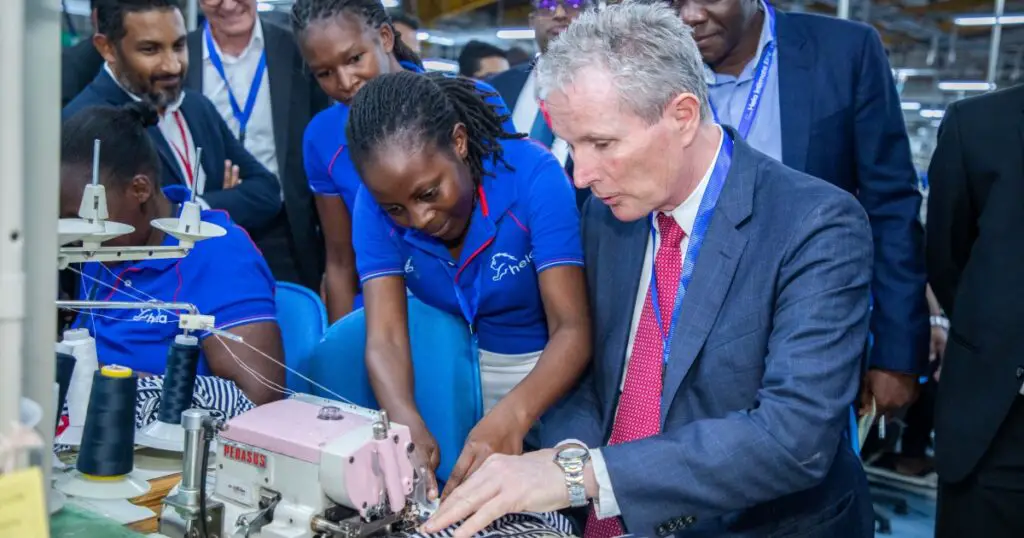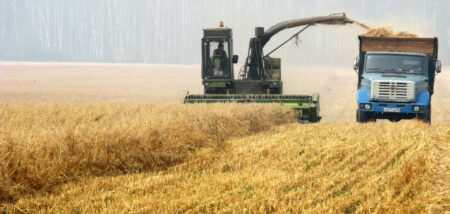- National Treasury has proposed several new tax measures to see the public and private sectors cough more taxes to fund the 2023/24 budget.
- Spending plans for the next financial year are set to increase to $ 26.3 billion from the current financial year’s $ 23.8 billion amid increased recurrent expenditure against reduced development spending.
- Kenya’s treasury projects revenue collection by KRA at $20.9 billion for 2023/24, up from the current target of $18 billion.
Kenyan manufacturers have raised concerns over several proposals in the Finance Bill 2023. The country looks forward to the next financial year’s budget that the treasury cabinet secretary will table in June. The country’s National Treasury has proposed several new tax measures. Under these measures, the public and private sectors will cough more taxes to fund the 2023/24 budget.
The Treasury and Kenya Revenue Authority (KRA) remain under pressure on how to raise funds for the next budget. Spending plans for the next financial year increase to $ 26.3 billion from the current $ 23.8 billion. Recurrent expenditure will increase against reduced development spending. President William Ruto’s government remains keen on cutting down on new projects, taming borrowing, and increasing revenues.
Kenya’s treasury projects revenue collection by KRA at $20.9 billion for 2023/24, up from the current target of $18 billion. The fiscal deficit is $4.8 billion (4.1 per cent of GDP) from the current year’s $8.1 billion. The government remains confident of strong growth this year, projecting economic growth of 6.1 per cent.
According to Kenya’s Treasury, leading indicators show a strong economic performance in the first quarter of 2023. The performance reflects robust activity in the service sector. It also includes the wholesale and retail trade, accommodation and food services, education, and information and communication.
“The growth outlook will be supported by a broad-based sector growth, including a continued strong performance of the service sector and recoveries in agriculture, while the public sector consolidates,” Treasury has said. The private sector is, however, concerned about plans to increase the number of taxes, which will hit Kenyan manufacturers hard.
The National Assembly published the Finance Bill 2023 on April 28, 2023. The Bill seeks to amend laws relating to various taxes and duties. These include the Income Tax Act, Value Added Act (VAT), Tax Procedures Act, and Excise Duty Act. The Bill also proposes new taxes, regulations, and incentives.
Some of the proposals in the Finance Bill 2023 will promote manufacturing growth in some sectors. However, the Kenya Association of Manufacturers (KAM) has raised concerns that several others shall hinder this objective. KAM engaged the National Assembly’s Departmental Committee on Finance and National Planning on May 24 and shared its feedback.
The association has applauded the proposals seeking to enhance manufacturing sector growth. These include, among others, the proposal to remove locally acquired loans from the 30 percent interest restriction under EBIDTA. It also provides for removing section 10 of the Excise Duty Act. That section gave KRA powers to adjust the specific excise duty rate yearly to consider inflation.
Moreover, the Bill proposes to remove locally manufactured plastics from the list of goods subject to excise duty. The move will reduce the cost of plastic products. This will, in turn, cut the cost of consumer goods packed in plastics. These include edible oils, water, juices, sodas, soaps, detergents, and cosmetics products, among others, KAM said.
According to KAM chairman Rajan Shah, if implemented, the Finance Bill 2023 has some proposals with far-reaching economic consequences. First, KAM is concerned with imposing levies on imported raw materials and intermediate products, ostensibly to promote exports. It sees no economic relationship between setting levies on importing clinker, metal products, and packaging paper products with exports.
Read also: Grim Outlook as South Africa’s manufacturing contracts in April
“In our view, imposing levies on imports makes Kenya uncompetitive compared to other EAC partner states. This import levy on raw materials goes against established taxation regimes such as EAC Common External Tariff (CET) and export-led Duty Remission Scheme (DRS),” Shah said.
For instance, the imposition of a 10% levy on imported clinker, which constitutes 60-70% of inputs meant for cement production, goes against the National Independent Clinker Verification Committee report published on September 2021.
The committee comprised Ministries in charge of the National Treasury, Trade and Industry, Petroleum and Mining, Kenya Bureau of Standards (KEBS), cement industry players, and KAM. It was established that Kenya should not impose higher duties on clinker until 2026.
The implementation of this levy, therefore, poses serious negative economic and social ramifications, the association said.
In a meeting held on January 26 this year between the Ministry of Investment, Trade & Industry, KAM, and cement manufacturers, the companies committed to an accumulative investment of circa Ksh 100 billion ($772 million) in clinker manufacturing within the period, of the current taxation regime that affords them quality imported clicker is maintained “as is” as per the committee’s recommendation.
However, the proposed import levy will do less to protect the local clicker producers. Instead, it will lead to the import of cheaper finished cement from EAC partner states. According to KAM, this may lead to the loss of over 100,000 jobs.
Read also: EAC bloc starts digitizing imported goods tariffs
“This philosophy will replicate in the other proposed sectors, including billets, wire rods, and kraft (paper products),” said Shah.
KAM is also concerned with the proposal to impose a 10% export levy on imported kraft. Kraft liner is used in packaging staple foods such as maize, wheat, cassava, and millet flour, among others.
According to KAM, the proposed levy will have a direct negative impact of increasing the cost of packaging Unga (flour).
“This will increase the cost of unga for consumers and comes at a time when mwananchi cannot put up with the inflated cost, said Shah.
An analysis shows that by imposing the levy, Kenyan products will be the most expensive in the East African region. This will reverse the trade flow from EAC partners to Kenya. Locally, consumers will bear the increase in commodity prices despite the ever-increasing cost of living, Kenyan manufacturers warned.
Secondly, in the leather sector, the Finance Bill 2023 proposes to reduce the levy rate from 80% to 50% on raw hides. KAM said it is concerned that the proposal will lead to a shortage of rawhide and skins.
Kenya has 13 tanneries operating at about 30 percent capacity due to inadequate raw hides and skins. The country produces approximately 5,000 metric tonnes of raw hides and skins monthly.
However, tanneries can only access 30 percent of this, with the rest smuggled out of the country. The reduction of the export levy to 50 percent, Kenyan manufacturers said, will lead to the collapse of the sector, job losses as well as loss of government revenue.
The Bill has also proposed to review the 1.5 per cent Import Declaration Fees (IDF) on imported raw materials and intermediate products and increase it to 2.5 percent for all Kenyan manufacturers. The review will raise the cost of importation and, subsequently, the price of manufacturing essential goods. KAM insisted that the increased costs pass on to consumers already struggling with the high cost of living.
There is also the proposal for a mandatory deposit of 20 per cent of disputed tax with the KRA when appealing a Tax Appeals Tribunal (TAT) decision. This will negatively impact most businesses’ working capital and cash flow by holding the money in escrow without the capacity to earn any interest. Tax disputes can take years to resolve. Additionally, it shall discriminate and deny aggrieved taxpayers access to justice if they cannot raise the amount in controversy.
“This will lead to an unfair administration of justice because only the taxpayer is required to make the deposit. KRA is exempt from the same rule where the Commissioner appeals a TAT ruling, particularly regarding tax refund disputes,” Shah said.
The proposal on excise duty of $0.30 per kg on locally manufactured confectionery could also drive several local companies out of business. It will make them uncompetitive and their products unaffordable.
This move will eliminate the competitiveness of the local confectionary industry against imports. According to Kenyan manufacturers, retail prices will increase due to the excise duty cost passed on to the consumers.
It will also erode the competitiveness of locally produced confectionery products in regional export markets such as Tanzania and Uganda. In these countries, lawmakers rejected similar proposals to make local confectionary excisable after assessing the negative impact on the industry.
Furthermore, the proposal to charge an excise tax of Ksh5 ($0.036) per kg on sugar will lead to an increase in the price of sugar and goes against the government’s agenda of bringing down the cost of living.
Note that the current price of sugar has hit a high of over Ksh 200 ($1.44) per kg. Additionally, excise duty on sugar will make the products manufactured using sugar uncompetitive. (https://davidsinstruments.com/) Other EAC states do not impose excise duty on sugar.
In addition, the Bill has also proposed a 20per cent excise duty on locally manufactured pasta. KAM says this move will increase the cost of locally manufactured pasta. It also goes against the goal of transforming Kenya into an industrial-led economy.
Historically, Kenya imported all its pasta. However, the government encouraged investment and local production through the incentive of subjecting only imported pasta to excise. This resulted in the setting up a local manufacturing plant to make Kenya self-reliant.
“We stand to erode these gains,” Shah said.
Finally, the Bill proposes to move inputs and raw materials (either produced locally or imported) supplied to pharmaceutical manufacturers from the zero-rated Schedule to the exempt Schedule.
Effectively, local suppliers of the materials cannot claim input VAT. Thus, they will have to factor this amount into the selling price. Consequently, this will increase the cost of the locally procured inputs and raw materials. The Finance Bill 2015 moved the materials from the exempt to the zero Schedule.
“We are living in challenging times when the cost of living is high. Our focus as a country must be on reducing the cost of commodities and sustaining our economy. We urge the government to consider the views of all stakeholders, including citizens and the business community, before adopting the proposals in the Finance Bill, 2023,” said Shah.











